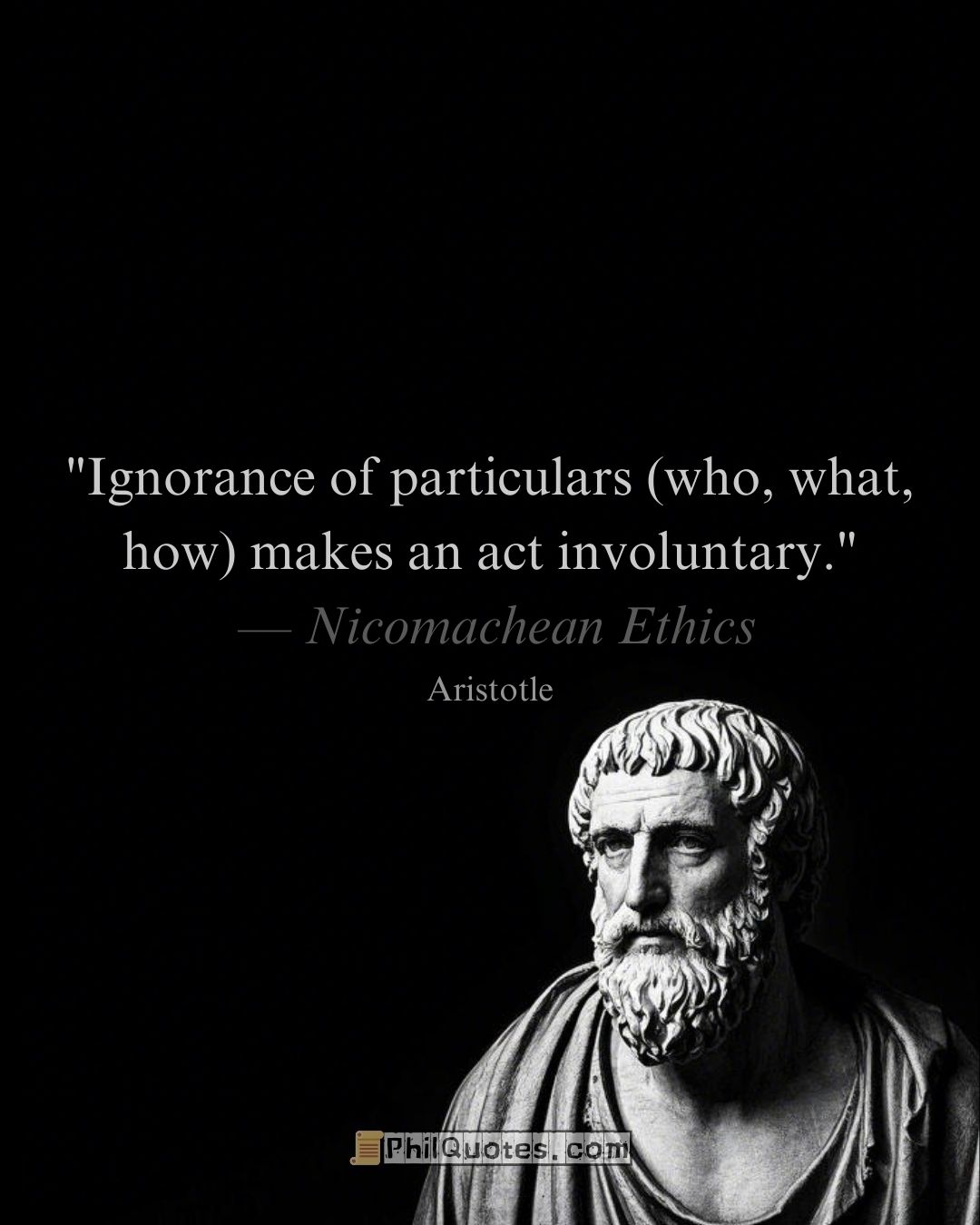
“Ignorance of particulars (who, what, how) makes an act involuntary.”
— Aristotle, Nicomachean Ethics, Book III, Chapter 1
(Translated by W.D. Ross)
The Big Idea
Mistakes made in the dark aren’t fully your fault. Think of it like a video game glitch:
- Accidentally hitting a teammate because your screen froze → “I didn’t know!” → Reset and replay. 🎮
- Purposefully attacking → That’s toxic behavior. 💥
Real-Life Scenarios
🔥 Test-Time Confusion
Involuntary = You used a banned calculator not knowing the rule → Teacher explains, no detention.
Voluntary = You used it after seeing the “NO CALCULATORS” sign → Zero excuses.
🤝 Lunchroom Oops
Involuntary = You accidentally took someone’s lunch (same bag color) → Return it = No blame.
Voluntary = You knew it wasn’t yours but took it → Theft = Big trouble.
📱 Social Media Misstep
Involuntary = You shared a fake meme without knowing it was false → Delete + Fact-check = Clean record.
Voluntary = You spread lies after learning the truth → Reputation crash.
Try This Week
- The “Particulars Checklist”
Before acting, ask:- “WHO does this affect?
WHAT am I actually doing?
HOW will it play out?”
- “WHO does this affect?
- Glitch vs. Greed Journal
Track 3 actions:- Example: “Borrowed a pencil thinking it was mine → Oops! 😅” = Involuntary
- “Ate Joe’s chips knowing they weren’t mine → Guilty. 😬”
- Apology Drill
Practice: “I didn’t realize [WHO/WHAT/HOW] → Here’s how I’ll fix it.”